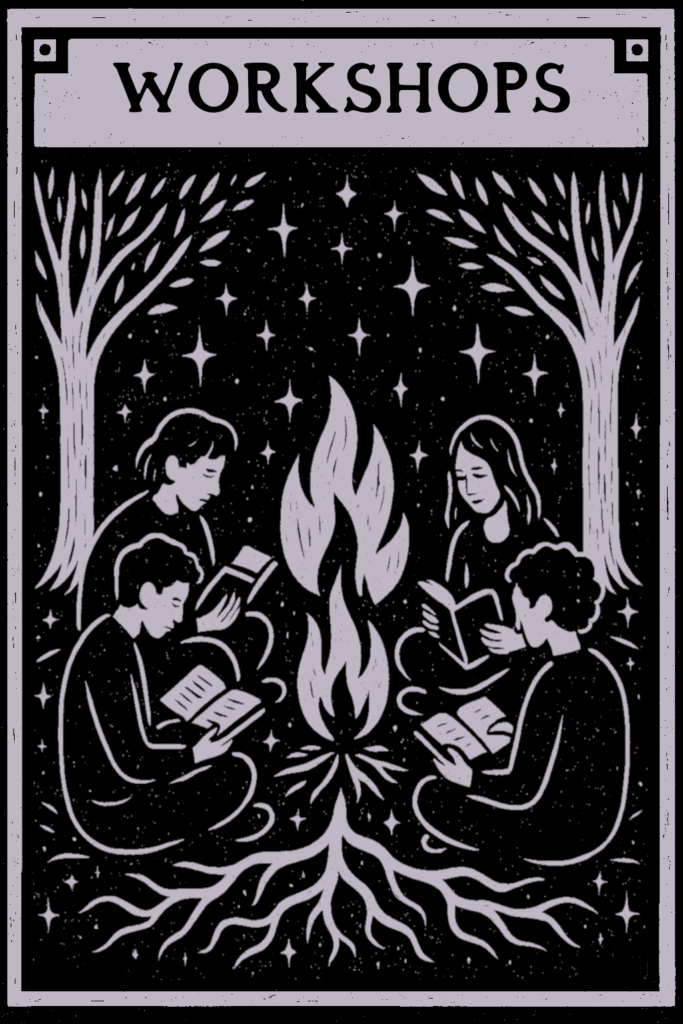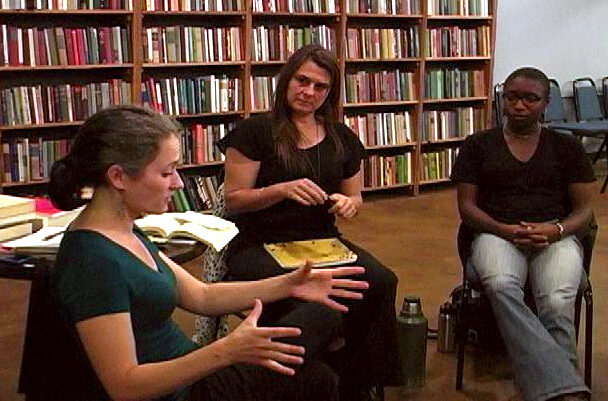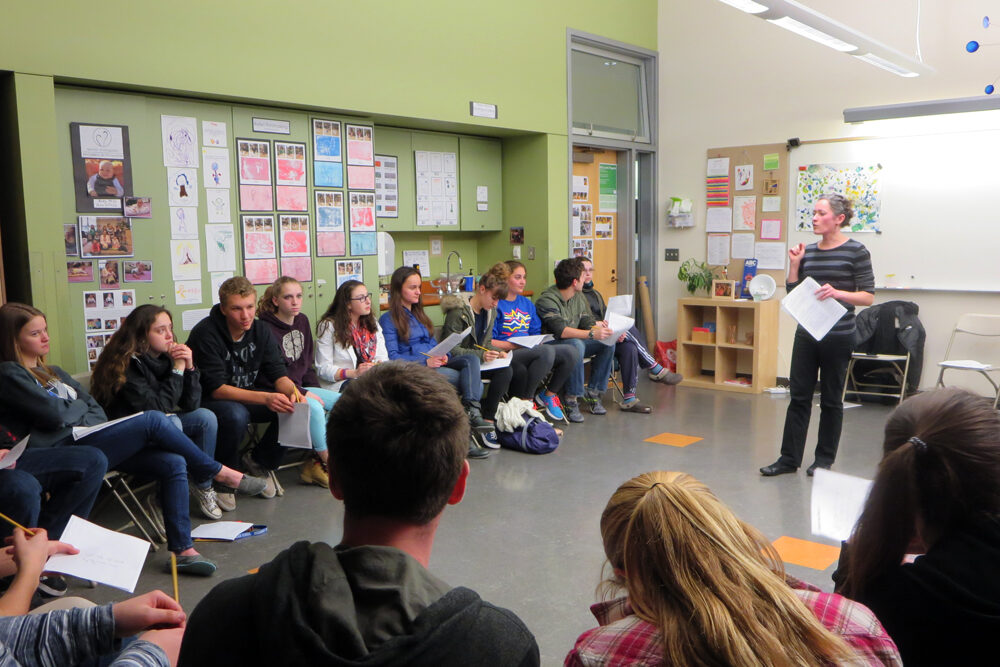tell all
the truth
but tell it
slant
—emily dickinson
Slanting stories is a technique to tell the full emotional reality of our experiences and beliefs.

A story slant is a creative re-visioning of a tough and important life experience, re-framed with plucky animal heroes or supernatural battles. Story slanting encourages imaginative embellishment and exploration of the deep truths of metaphor and symbolism. Your story becomes an alchemy of fact and feeling; a way to tell the whole truth.
Story Slant workshops are places for creative play where we delve into imaginative space. Storytellers are safe to explore and are encouraged to experiment. I cultivate space for curiosity where we discover the bravery and magic threaded through our lives. We remix archetypes and story forms to ruffle the hegemony and create outside the lines. This reflective, therapeutic process of re-casting marginalized pieces of our personal history helps us build deep understanding while honing story-craft and public speaking skills.
Individual and small group Story Slanting workshops are intellectually grounded and emotionally resonant. We explore the types and structures of performed story and then craft our own. You will imaginatively re-shape an event of heartbreak, embarrassment, or confusion from your life and transform it into an empowering tale you can tell. We will cover essential public speaking skills to give you confidence to share your tale, whether your audience is gathered around the family dinner table or in a busy auditorium.
Workshop Opportunities

Groups
Workshop cohorts number between two and ten people. We gather in a cozy spot to work together in a one or two day intensive or a more in-depth weekly workshop series.

Lectures
Larger groups engage in hybrid interactive lecture/workshops, exploring foundational elements of historical storytelling arts and ways to engage the craft in our own lives.

Coaching
Together we map your route through creative, introspective activities. Whether assembling a memoir, delving into a “story slant” or developing personal ritual, we develop your tools to create fully.
Why is Storytelling Important?
There is a reason storytelling is one of our oldest continuing arts. We are meaning-making animals and we thrive on tales that help us make sense of the world. By sharing the art of story we strengthen ourselves and our community.
From Workshop to the Wider World
Previous participants have used the stories they’ve created in my workshops to craft dance performances, write college essays and children’s books or to boost their confidence for Storytime with their kids.
The Power of Witness
You are not required to tell your story publicly, though I encourage partnered or small group sharing in workshops because the act of telling your story aloud to other people is an important step to close the loop on the process.
Storytelling Belongs to Everyone
You do not need to be a writer or performer to be a storyteller. You just need to have imagination and willingness to engage with a sense of wonder and creativity.